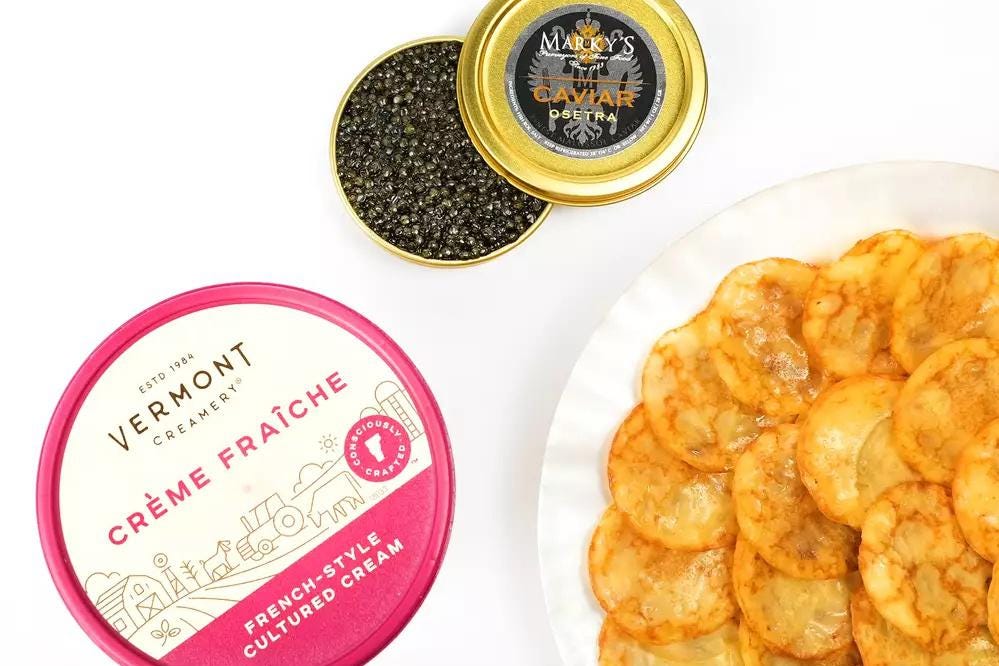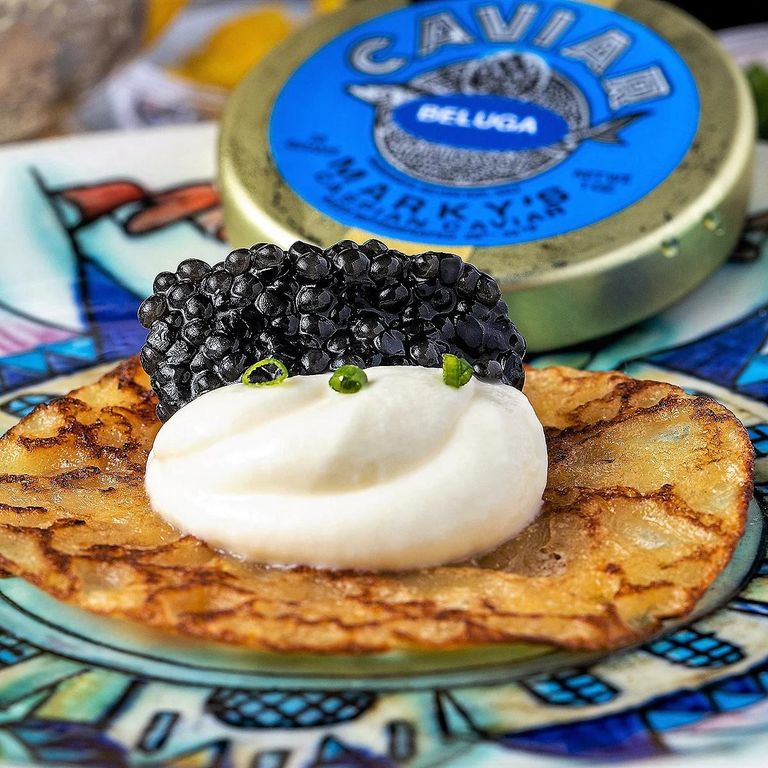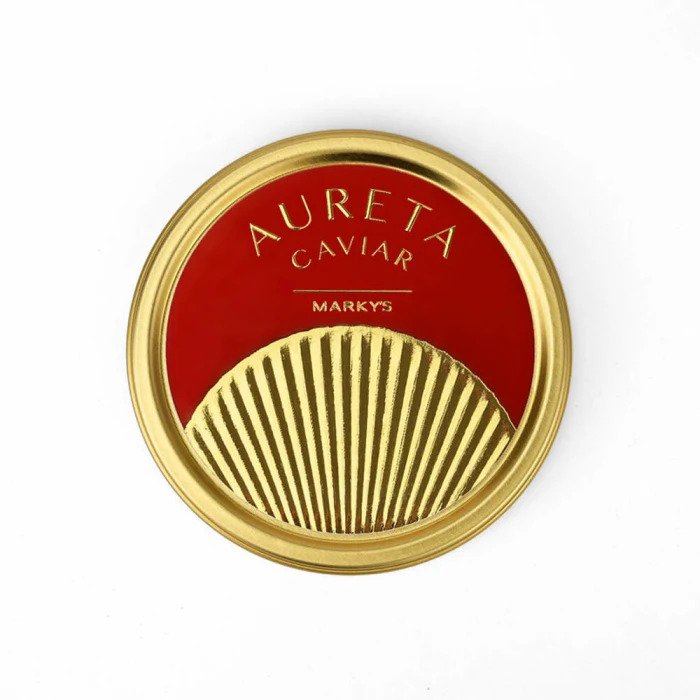Businessmen Seek to Raise Endangered Caspian Sea Sturgeon in Florida Ponds
Category : Food Stories, Party Ideas, Recipes, Press Room |
Posted : Apr 14, 2004
Posted on Wed, Apr. 14, 2004
National
Businessmen Seek to Raise Endangered Caspian Sea Sturgeon in Florida Ponds
By Joseph Mann,
South Florida Sun-Sentinel Knight Ridder/Tribune Business News

Apr. 14 - Two South Florida businessmen who sell some of the world's most expensive fish eggs -- caviar from Caspian Sea sturgeon -- are trying to raise these endangered fish in Florida.
Ukrainian immigrants Mark Zaslavsky and Mark Gelman, owners of Miami-based Marky's Caviar, which sells gourmet foods, began importing live Caspian Sea sturgeon last June and now have 100 of them on a fish farm in Pierson, west of Daytona Beach.
Of the 100, which range from 5 to 10 years old, more than 60 are beluga sturgeon and the remainder are osetra and sevruga varieties, which also produce caviar.
The highest-grade beluga caviar now sells at more than $100 per ounce. Prime-grade osetra and sevruga caviar retails for around $60 and $44 an ounce, respectively.
But the two partners, who brought the Caspian Sea fish to Miami from a holding facility in Germany by air freight, won't see caviar from the fishery anytime soon. "If everything goes well, we'll have caviar available for sale in seven or eight years," said Zaslavsky, Marky's president. "We're trying to sustain and restore the sturgeon population," he added.
Marky's owners are financing the project, called Sturgeon AquaFarms Ltd., and are working in partnership with Gene Evans, a Volusia County fish farmer. So far, the two partners have invested more the $300,000 in the sturgeon project.
Beluga, the rarest of the three varieties of Caspian Sea sturgeon, normally take "30 years to go from fry to egg-laying in their natural environment," said Frank Chapman, an associate professor of fisheries and aquatic science at the University of Florida who has been working on the project.
But in captivity in Florida, with ample food and free of natural enemies -- particularly sturgeon fishermen who typically kill females for their eggs -- the sturgeon can mature and lay eggs much faster, he said. Beluga sturgeon can live up to 100 years and reach 30 feet in length.
World demand for caviar and overfishing have threatened the species in the Caspian Sea, and attempts to control the international caviar trade have been thwarted by poaching and black market activities.
Chapman, who raised domestic sturgeon as a student at the University of California at Davis and brought this technology to UF in 1990, met Zaslavsky several years ago. The businessman suggested they work together on raising imported sturgeon.
"There are four sturgeon farms in Florida and Mark has the only beluga sturgeon farm in the United States," the Colombian-born Chapman said. "If we can pull this off, it will be one of the biggest things we can do for the environment. Other people can use the same technology. This will take pressure off, and the wild population can come back," he added.
The Florida Department of Agriculture's Bureau of Aquaculture Development also sees the AquaFarms project as a sound way of ensuring a supply of sturgeon fry and fingerlings for the future. "This is probably going to set the pace for sturgeon farming in the U.S.," said Mark Berrigan, the Aquaculture Bureau chief.
But the environmental community is divided on importing Russian sturgeon.
"We are opposed to aquaculture that requires the importation of the highly endangered beluga sturgeon from their natural habitat in the Caspian Sea," said Sunny Wu, spokeswoman for Caviar Emptor, a Washington, D.C.-based group that works to protect endangered Caspian Sea sturgeon. "Rather than promoting recovery, removal of sturgeon from the wild to support aquaculture abroad further depletes a species already on the brink of extinction."
Caviar Emptor has urged the U.S. Fish & Wildlife Service to list beluga sturgeon as an endangered species, a move that would ban beluga imports into the United States,
Chapman and Sturgeon AquaFarm's promoters, however, see what they're doing as supplementing other techniques to save the sturgeon, such as tightening controls on poaching in the Russian Federation and on illegal caviar exports.
"We're doing this project to save the sturgeon," Chapman said. "If we don't start now, we'll never be able to do it."
http://www.miami.com/mld/miamiherald/business/national/8428934.htm?1c













